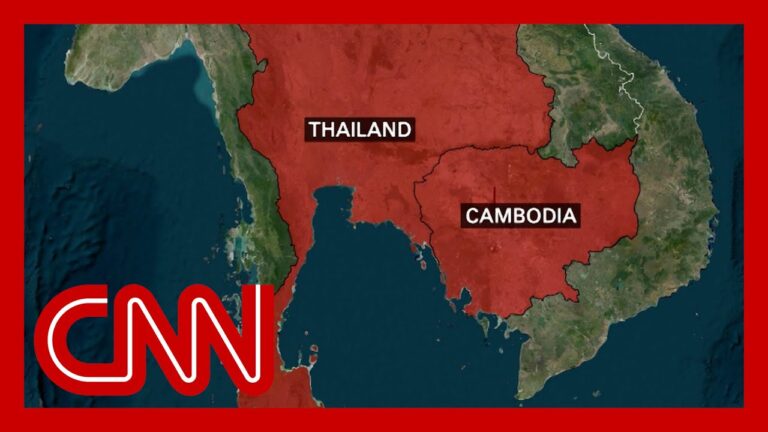Video at the bottom!
Increased fighting along the Cambodia-Thailand border has led to Thailand’s declaration of martial law in two provinces as border clashes enter their second day. The violence has displaced over 130,000 people and resulted in more than a dozen fatalities. The Thai military has called for Cambodia to return to negotiations, emphasizing the importance of maintaining friendly relations. Tensions between these Southeast Asian neighbors have escalated over disputed areas along their 800-kilometer land border, particularly concerning several religious sites claimed by both nations. These sites were largely delineated by France during its colonial rule over Cambodia.
Cambodian officials have accused Thailand of aggression aimed at seizing Cambodian land, suggesting that the international community and the International Court of Justice should recognize Cambodia’s position in bringing the dispute before the court. The current state of hostilities is precarious, with the acting Prime Minister of Thailand warning that continued developments could lead to war. Despite periodic flare-ups in border disputes over the years—such as significant clashes in 2008 and 2011—this recent conflict marks the most violent encounter between the two nations in at least a decade.
The long-running territorial dispute dates back over a century to borders drawn by colonial powers. Many believe that these historical injustices exacerbate current tensions. Both countries’ claims stem from an ambiguous map created in 1907, leading to intermittent conflicts over the decades, particularly surrounding religious sites that Cambodia had sought to register as UNESCO World Heritage locations.
Amid this turmoil, the Association of Southeast Asian Nations (ASEAN) faces a critical test of its ability to foster diplomatic relations and resolve disputes. Malaysian Prime Minister Anwar Ibrahim, as the ASEAN chair, is proactively reaching out to both Thailand and Cambodia to mediate the crisis. Statements from various Southeast Asian countries, including the Philippines, Indonesia, and Vietnam, have underscored regional concern. Indonesia’s previous involvement in mediating crises highlights the importance of an independent and impartial fact-finding mission to clarify the conflicting narratives from both countries.
The current blame game is evident as accusations fly between the two nations. Reports that the Thai military may consider deploying cluster munitions against military targets raise alarms about the potential escalation of violence. With over 100,000 displaced civilians, the consequences of continued conflict could be catastrophic. Observers warn that neither Thailand nor Cambodia can afford war, urging all parties to seek peaceful resolutions. Historical incidents fueling the recent violence, including the death of a Cambodian soldier and injuries to Thai soldiers from landmines, are compounded by domestic political pressures in both countries. The need for regional partners, particularly Malaysia, to step in for diplomatic resolution has never been more critical, as a further escalation serves no interest for either nation or the region as a whole.


